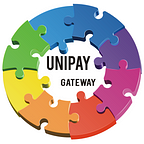Merchant Payment Solutions for African Businesses
There is, without a doubt, a massive potential for developing electronic payments in Africa, both at regional and continent-wide levels. Multi-local businesses in Africa could accept electronic payments through a universal solution, such as an online payment gateway. About 100 million micro-, small-, and medium enterprises (MSME) operated in Africa mid-2021. However, most of them still relied on cash by mid-2021. However, the ability to accept electronic payments would benefit these enterprises.
Common issues in adopting payment solutions in Africa
Regarding electronic payments in Africa, vendors and customers face problems that can be broadly classified into two categories.
Payment-related hardware
Businesses need the appropriate equipment to accept card payments in a retail store. This is because online payment methods differ in South Africa, Nigeria, and other countries. They involve special hardware that the business must acquire. This hardware is not always cheap. As a result, installing this equipment in a cost-effective and physically feasible manner is, indeed, complex.
If your POS system lacks the ability to process transactions quickly, it may be due to a hardware problem. Many users report that using SoftPOS solutions can alleviate this issue in particular for smaller-sized businesses. SoftPOS systems are apps installed on smartphones with NFC capabilities. These alternatives do not require any additional payment equipment.
If a merchant wants to reduce the initial cost of the terminal, they have the option of paying for it in monthly installments. Although, there is always the risk that the merchant might not follow through with those payments to their provider.
Maintaining business ethics is important for anyone who processes payments and controls the payment equipment. This helps to prevent fraudulent activity.
Verification of merchant backgrounds, underwriting, and fraud
Currently, only a few local businesses in Africa have access to merchant accounts granted by acquiring banks and payment gateways. In the absence of options, merchant fraud is possible.
The primary issue associated with merchant underwriting, especially in Africa, is verifying backgrounds.
In such nations as India, verifying individuals and enterprises remains a difficult task. However, they already have access to more centralized data sources to complete this operation. It’s much more difficult in Africa to come by such dependable sources, especially across several nations. As a result, authenticating the background or trustworthiness of a certain vendor may be challenging.
Business payment solutions currently available in Africa
A few payment options are already accessible to current and future African merchants.
South Africa is leading the way in electronic payment methods among African countries. Some of the most popular online and card payment processors used in South Africa are SnapScan, Yoco, PayFast, PayStack, Zapper, and more. These are mostly targeted at MSME’s local payment solutions that process electronic and mobile payments. Their commissions usually fall between 2.2% to 3.5% of the transaction amount.
Several e-Commerce websites are providing goods and services to their customers. As a result, African Payment Solutions, for example, helps multinational e-Commerce corporations enter the African market by filling in the gaps.
Large businesses are also beginning to compete in Africa. Stripe Atlas, for example, is a startup-friendly payment gateway created in 2016 that is available to companies all around the world (including in Africa). The solution caters to a wide range of firms, including e-commerce websites, software as a service (SaaS) organizations, online marketplaces, platforms, and other enterprises.
Regarding new startup numbers, Nigeria (Africa’s largest economy) displays a record year-over-year increase of 400%. Furthermore, new startups dramatically switched to electronic payment systems during the pandemic.
Cryptocurrency and other innovative payment methods
As stated before, there are many startups and digital freelancers in Africa. These entities work remotely and serve customers in Europe, the US, and other countries. These businesses prefer payments in these nations’ local currencies. Otherwise, they must convert these currencies (EURO, USD, etc.) back to local currency.
Not only do these conversions prove costly, but they also take an extensive amount of time. Issues relating to merchant underwriting continue to be problematic for people and businesses who want to accept payment worldwide.
One possible solution is to use crypto rails instead of traditional bank payments. Crypto transactions do not require merchant underwriting, so a small business could accept USDC instead of USD. USDC can be converted to USD through a wallet or exchange service. For example, someone with a Nigerian bank account should be able to open a crypto wallet. With USDC, you can fund your wallet, convert the currency to USD, and then transfer the money to a traditional bank account or another location.
If you want to learn more about payment solutions available to your specific business, don’t hesitate to contact UniPay Gateway’s payment experts.
